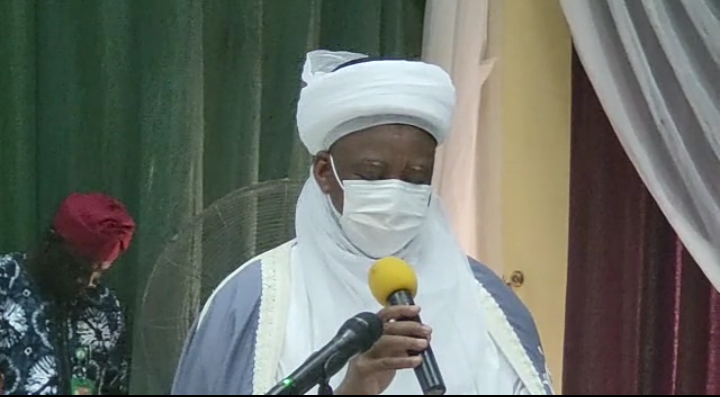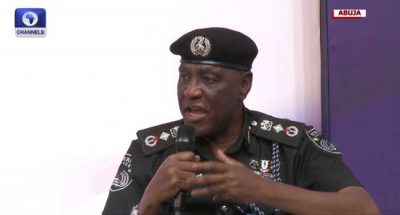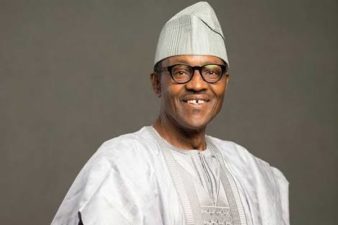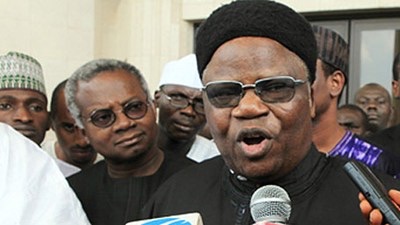*Says NIREC leaders must activate role of growth, development enabler for Nigeria as leader of Africa
By KEMI KASUMU
The Sultan of Sokoto, Alhaji Muhammad Sa’ad Abubakar, has condemned situation where Nigerians now turn religion to be a source of conflict and animosity thus killing themselves in name of same.
He said this on Thursday while delivering his opening remarks at the second quarterly meeting of the Nigeria Inter-Religious Council (NIREC), held at Bodija, Ibadan, Oyo State capital, on Thursday.
Sultan Sa’ad Abubakar, who is co-Chairman of NIREC, noted that those politicians politicizing religion were those who are incompetent and lack the capacity to solve the problems facing the nation.
Ahead of the 2023 elections, he particularly tasked Nigerians to evaluate politicians on their ability to deliver on the immediate needs of the nation rather than on the basis of religion or region.
He bemoaned that the nation’s politics is devoid of compassion and decorum but characterised by greed and violence.
Sultan Abubakar said: “In the last decade also, our society has been facing enormous problems of security, economy and infrastructure. It is important to ask our politicians to focus on solving these problems which do not distinguish between Muslims and Christians but not to create new ones by dividing us along religious lines. After all, we all go to the same markets, same hospitals, and same places both as Muslims and Christians.
“Our politics is devoid of compassion and decorum but characterised by greed and violence. We must tell our politicians to stop dividing our society along religious lines by politicizing religion. Most of the politicians who fall back on religion are usually those with not much to offer in terms of competence or solving the problems of the society.
“We need to call the politicians to order and evaluate them on their ability to deliver on our immediate needs rather than religion or region. If they indeed care about religion, then they should avoid being corrupt and we shall know them by their ethical standards.”
Addressing the theme of the meeting, “Promoting Mutual Love and Understanding in Nigeria,” the Sultan wondered how people kill other persons in the name of religion.
He, consequently, tasked Muslim and Christian leaders to educate their followers that what is expected of them is to ensure that their families are built on love, compassion and mercy.
“When and how did we turn religion to be a source of conflict and animosity, killing in the name of religion; expressing criminal hate speeches in the name of religion and ethnicity, not loving your neighbour as you should love yourself?,” he questioned.
Speaking further, the Sultan said, “One of the most potent diversities is religion. But the good thing is that these religions are all from One God, and coming from one source share a lot of the fundamentals. Both Islam and Christianity recognize and defer to God and both recognize the temporariness of the life of this world and that ultimately we all go back to God for the day of reckoning when everybody will render an account of his life on this temporary abode.
“The essence of religion is to guide us to ensure that we navigate our lives here on earth in such a way as to return to heavens. That there will be consequences and that there is no escape from God’s judgement should ought to tame our behavior and it is the job of religious men and women, the ulama and clergy to constantly remind us of this reality.
“More importantly is the fact that religion is built on love and in Islam this is also fundamental though not sufficiently explained,” he said using a scholar’s work to corroborate his point.
“One of our associates, a promoter of mutual love and respect, HRH Prince Ghazi bin Muhammad, recently published his PhD thesis on the topic of ‘Love in the Qur’an” done in the great University of Al-Azhar. It is important to reflect on this great book and its message.
“One of our associates, a promoter of mutual love and respect, HRH Prince Ghazi bin Muhammad, recently published his PhD thesis on the topic of ‘Love in the Qur’an” done in the great University of Al-Azhar. It is important to reflect on this great book and its message.
“In the book, he reminded us that Allah is Al-Rahman, the Compassionate and Al-Rahim the Merciful, but he is also Al-Wudud the Loving one. His creation of mankind and his abode and the rest of the universe are acts of love out of which flows His compassion and mercy. He instructed us to show compassion and mercy between spouses as well as within the family and he instructed us to show compassion and mercy to the rest of mankind.
“He specifically said in the words of His Prophet, Muhammad (SAW) that He Allah will not show mercy to any human being who has not shown mercy to his fellow human beings.
“The message of both Islam and Christianity in its origin and essence is therefore a message of love, of compassion and of mercy among all His creations within the universe. When and how did we turn religion to be a source of conflict and animosity?
“As leaders of the two major religions in this great country, we must rise to the occasion by spreading this message for the followers of religion to understand the essence of creation and what is expected of us as Muslims and Christians. We must educate our followers and ensure that families are also built on love, compassion and mercy so that younger generation will grow up in the ambiance of love, compassion and mercy.”
Nigeria as Africa’s leader
The Sultan, who is Co-President, World Religions for Peace headquartered in New York, United States of America, found a space in the speech to let Muslim and Christian leaders at the meeting know why they must move from where they were to focusing more on playing roles as growth and development enablers, which help Nigeria fulfill its responsibility as leader of Africa.
“Distinguished religious leaders we must remind ourselves that Nigeria, by its size and resources is a leader in Africa, and for it to play this leadership role it has to address its developmental challenges. It has to develop its economy to provide jobs for millions of youth roaming the street without jobs. For this to happen we need to address the serious issue of insecurity that has paralyzed the country.
“We need to address the infrastructural deficits to get the industrial production moving. With peace and security resolved and the economy booming, Nigeria can lead Africa to position itself in the 21st century, to become the continent of the future.
“Africa’s potentials are enormous but we need the leadership of nations like Nigeria to fire it. Africa is waiting for Nigeria, as Mandela was reported to have once said. We as religious leaders have a responsibility to ensure that we promote the love, compassion and understanding which our religion teaches us, so at to provide the requisite peace, security and development to allow Nigeria to play that leadership role which will make Africa the great continent it ought to be.”




